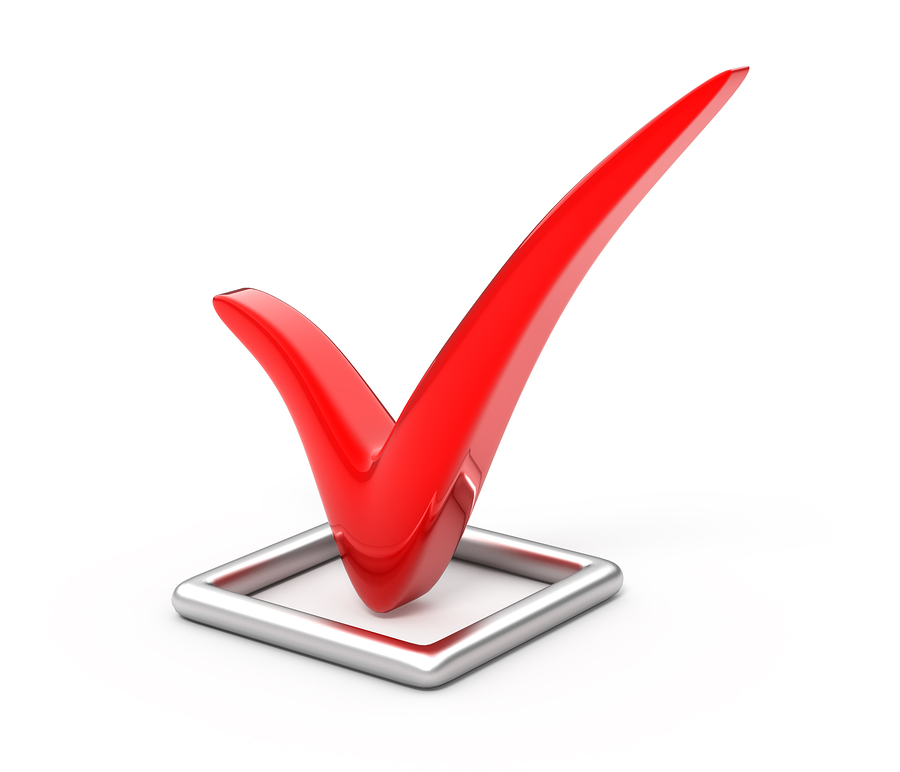Donation drives are important for quickly reallocating resources to community members who need them most. Follow these six tips to make the most of your drive.
Top 3 Things Donating Can Do for You and Your Business
How can donating help you in your business?
Large or small, businesses want give back to their communities. They want to find a way to get involved. Should they? Absolutely! Nonprofits are always looking for more donations to help them attain their charitable goals. Giving to these organizations can really benefit your business, too. You know that your company’s success isn’t related to just one thing. It includes a myriad of ideas and network of professional relationships. It also includes loyal customers who wear many hats and could easily be a part of local nonprofits and charities.
So, what are these Top 3 reasons?
Customer Loyalty
Giving back to your community will help you connect with your customers. It will help you gain traction and trust. A study done in 2014 revealed that 85 percent of consumers had a more positive outlook on businesses that gave back to a charity that they cared about. This means that giving to more than one charity is the most beneficial way to go. Participating in programs and giving back to more than one organization shows your customers that you really do care about your local community. After all, actions do speak louder than words.
Tax Deductions
We all know that you can claim volunteer hours and contributions on your income taxes. By itemizing your deductions you can write off any time your business spent volunteering and you can add monetary value to any donations given as well and claim them, too. The types of donations that are tax-deductible are cash donations, donations of inventory or services, volunteering, sponsorships of charities, and events. You will of course need to ensure that you are working with an organization that is approved by the IRS.
Earned Promotion and Publicity
Sponsoring one or more different nonprofits or volunteering your time is a great way to raise awareness about something you care about but it is also a fantastic way to promote your business! You can get the word out about the event by posting it on your social media platforms and on your website. Often, the nonprofit or charity you are working with will also be doing the same. Now, you have two media outlets and twice the attention, all because you care about giving back to your local community.
However, picking a charity or charities isn’t as easy as it seems. You need to set aside time to research them, make sure they fit your company’s culture and values. Then, you have to think about your customers and who they might support. Finally, you have to take time to think about your frequency of donation and how you will get your donation to the charity in a timely fashion. To that we say, “Don’t get discouraged!”
How do you begin?
www.donationmatch.com We can handle it all. You tell us who, when, and what you want to donate and we do the rest. We even confirm applicants belong to a real nonprofit organization and get you all of the information you will need to get any deductions you deserve.
All you have to do is click, “Approve.” What is easier than that? Try it today! It’s FREE to sign up and start donating and building relationships!
What Information Should You Collect Before Your Next Event - And Why?

Constant Contact has developed a simple strategy for asking the right questions, and in a blog post they explain why obtaining the right information is so valuable in planning your next event. The key to collecting the right guest information before your next event is to start with an online registration form. This allows you to easily learn more about your guests as part of the ticket purchase process. Anyone can use a company like Eventbrite, TicketDerby, or Ticketleap to make it easier, and the best will suggest pertinent questions that will help in planning your event. Knowing what to ask and keeping the form streamlined is crucial.
According to Constant Contact's strategy, #1 is demographic information. "A nonprofit can use demographic data when planning entertainment or auction items for their annual silent auction fundraiser." Here is their list of what to collect:
1. Demographics: Name, age, gender, even zip codes can matter to sponsors and event partners.
2. Number of guests: Plan seating, food, and amenities better with an accurate count.
3. Contact information: Don't forget about asking for email addresses for follow-up surveys or future communications.
4. Event-specific information: Are there meal or seating choices to make? Need t-shirt sizes for giveaways? Can you sell raffle tickets or add-ons in advance?
5. Payment method
At DonationMatch, we do our best to collect the right information on behalf of our users, too. To help companies and brands find their target markets (and nonprofits present themselves to the right opportunities), we ask event organizers for attendee demographics, ticket prices, estimated attendance, social media links, and more. And even before events can be listed on DonationMatch to be eligible to receive goods, a nonprofit's IRS status and account contact must be verified. Because we know nonprofits need to be mindful of the products and services they accept, we now use third-party resources like Yelp to check donor companies, too. We know having better information at your fingertips creates a better experience for both the giver and the receiver.
If your intent is to create a more successful event, asking for more of the right information, and understanding how to use it, is essential. Read Constant Contact's full articles for their strategy and explanations.
What information do YOU collect for a better event?
In-Kind Partnerships with Nonprofits, Part 2
By Renee Zau, Co-founder, DonationMatch My last post on this topic focused on opportunities tied to nonprofit events. Although these typically offer the most immediate exposure, they are often seasonal. Here are some ideas for in-kind charitable partnerships year-round:

- Be a venue for gatherings. You don't have to be a hotel or restaurant to have a desirable place. Spa Gregorie's Del Mar offers a board room for small get-togethers and meetings. Curves women's fitness centers often host meetings for Chambers of Commerce, Zumba fundraisers, and members' clubs. The Microsoft Store has raised the retail bar for community outreach with store space and free group trainings. Invite a nonprofit over and show them you're friendly!
- Give tools and support. PopChips started snacking habits in offices all over town with case giveaways. Microsoft Store free trainings make sure their software is used well. DonationMatch co-hosted a fundraising auction workshop with Red Apple Auctions to help nonprofits run better fundraising events. Though not "flashy," free assistance can put you at the top of a nonprofit's go-to list.
- Offer services or samples for a donation. By cross-promoting with nonprofits, Aveda sets up their store, complete with signage, to give mini treatments in exchange for a 100% charitable donation.
- A portion of sales helps, too.Souplantation/Sweet Tomatoes advertises FunRaisers that donate 15% of related receipts on given nights to nonprofit groups. Macy's gives $1 for every stamped letter to Santa deposited in special letter boxes in their stores to the Make-A-Wish Foundation. Even if you can't give something outright, a percentage can be enough.
- Offer your expertise. Nonprofits small and large are always looking for specific professional talent in their volunteers. It's become so popular that websites like CatchaFire and VolunteerMatch (not affiliated with DonationMatch) were created to make better volunteer connections.
- Not a lot of time? Even simply recognizing synergy within your own circles of friends and making introductions can lead to phenomenal results.
What are your success stories? Please share about the positive impact that charitable partnering has made on your business!
Related articles
- In-kind Partnerships With Nonprofits, Part I (donationmatch.wordpress.com)
In-kind Partnerships With Nonprofits, Part I
By Renee Zau, Co-founder, DonationMatch A question posed in a LinkedIn group made me reflect on how many (typically small) businesses don't know how to use cause marketing, specifically in-kind (non-cash) marketing, to their advantage. If you have a great product or service, one experience is all you need to convert newbies into customers, even raving fans. How do you get yourself in front of more potential customers without "paying" for it?
- Donate a package or certificate toward an auction, a raffle, or goodie bags. Most event attendees love these, and donors often get publicized both before and after the event. Look at donation request letters as opportunities to get hundreds, even thousands, of eyeballs on your brand. You can do online searches for event calendars, ask your employees and customers about organizations they support, check out community boards, or use DonationMatch (my site) to save time (we make connecting with events, sending pre-filled donation forms, and gift certificate delivery paperless and quick.) One more reason to like auctions: prize winners are the most willing and able to pay more for it than anyone else. You just found your best customer in the room!
- Provide event amenities (photography, food/beverage, decor, spa treatments, etc). For a furniture dealer, it could be VIP seating. Chocolates are popular party favors. I've seen HP and a photographer partner to make ornaments from photos with Santa. And who wouldn't appreciate mini spa treatments or makeup touch-ups from a local beauty product store, spa, or beauty school?
- Help spread the word. Your communications reach is another asset companies tend to forget about. Employees, customers, followers, subscribers... they count. Be familiar with events you choose to promote, make them a good fit for your customers, volunteer if possible, and the added awareness can add to a charitable fundraiser's attendance and success just as much as any monetary donation.
These opportunities are all tied to nonprofit events, my favorite kind, but may be seasonal or harder to find. Stay tuned for Part 2 of this post that gives more everyday ways to help in-kind.
Why not take one lunch break to reach out and explore possibilities with a particularly interesting local organization? And register on DonationMatch to be notified of event opportunities in your market - it's still free in many cities. I (and your local organizations) will love hearing from you!





